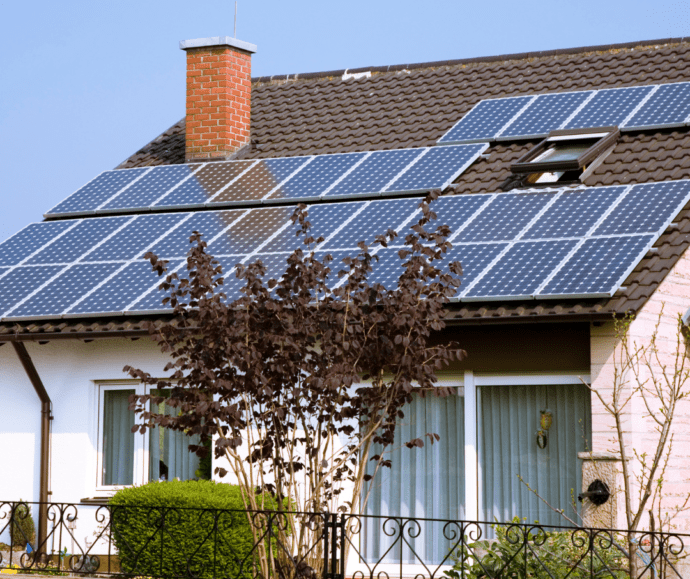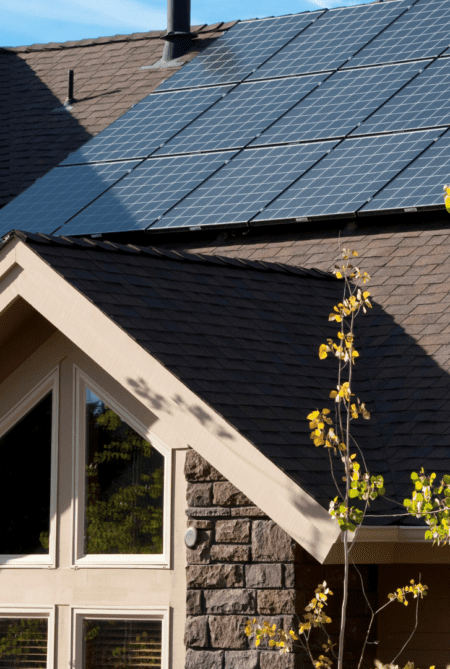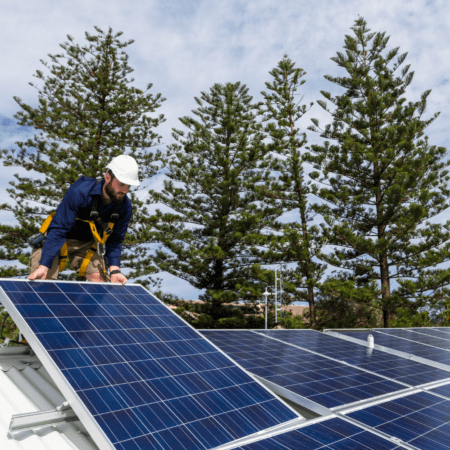
The Pacific Northwest isn’t the first place you think of when solar energy for the home comes to mind. But you’ll be pleasantly surprised to know that Seattle averages 164 sunny or partly sunny days per year. We see more hours of daylight on those days, increasing the potential for harnessing the power of the sun.
While we don’t see the same results in kilowatts hours (kWh) as residents in Arizona or California, the benefits are still substantial. If you are considering making the switch to solar power for your home’s energy, here’s what you need to know.
Why should I go solar?
Climate change has become increasingly top of mind. Many of us are looking for ways to do our part in making our homes more environmentally conscious by moving away from reliance on fossil fuels like natural gas to heat our homes. This also leads to considerable energy savings over time. While there is an initial investment upfront toward installation costs, the long-term savings potential is considerable. Plus, it increases the property value of your home. Having your own source of energy gives you the energy independence that many desire and it also comes with the peace of mind knowing that your local energy supplier is there to help in a pinch.
As a City Light customer, you can directly benefit from your solar installation through our net metering program. If you install a net meter and generate more electricity than you consume, City Light will credit your electric bill for every kilowatt hour of electricity sent back to the power grid. These credits are valued at your retail rate of electricity. Any solar energy you generate that isn’t immediately needed by your home goes back onto City Light’s grid and is added to your account’s net meter kWh credit balance, lowering your future bills. This enables our customers to apply any excess summer solar generation to their wintertime electricity usage.
How do I know if my home is right for solar?
It’s true that not every home may be ideal for a solar installation. You’ll want to ensure that it has adequate access to sunlight without major obstructions from trees or other buildings that may be preventing it from soaking up the sun’s rays. Typically, the best roofs for solar are south-facing with a pitch around 30 degrees and have at least 400-500 square feet of space available. You may also want to consider the age of your roof and whether it needs replacing. However, with the many varied housing types and architecture styles in our region, local contractors are more equipped to tackle our challenging roofscapes.
Can I install my own solar?
While the lure of DIY and cost savings is appealing, this is a highly specialized field that is best left to the professionals.
How do I find the right contractor?
There are many resources at the ready to help you find the right solar installer to meet your needs and budget. Starting with the Solar Energy Industries Association’s National Solar Database, you’ll find an extensive list of professional installers that you can sort by region. SolarReviews and Energy Sage – Washington Solar Installers are also handy as additional resources. We suggest avoiding the pitfalls of social media ads where it can be difficult to filter out any misleading sales tactics.
What should I look for in a solar company?
Look for experienced companies who are certified, licensed and insured for solar installation. Reputation is key: Look for reviews to see if they are known for having good customer service, quality work and follow through. Ask what brands of equipment they plan to install to ensure that you’re receiving the best product for money invested. A solid installer should also be knowledgeable on how to help save you money with the latest rebates and incentives.
This only scratches the surface of solar installation, but we hope it’s piqued your interest enough to want to learn more. Visit the City Light Solar Power page for more resources, and feel free to contact one of our Energy Advisors to learn more about the benefits of our net metering program.


